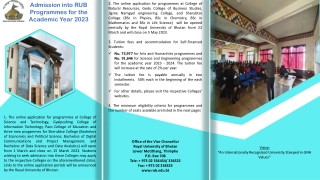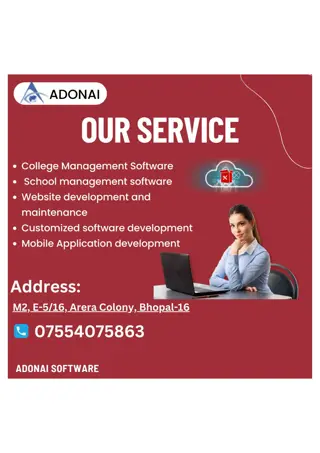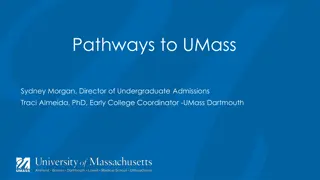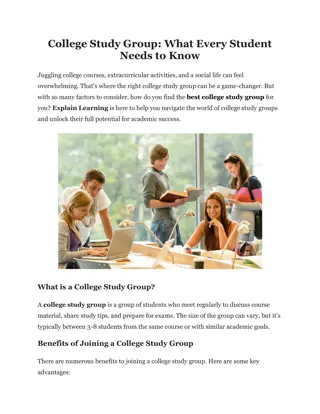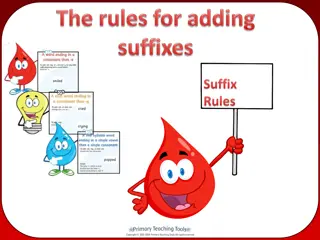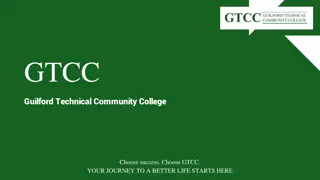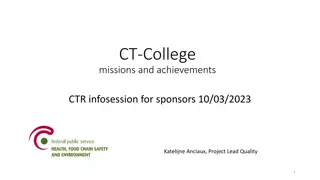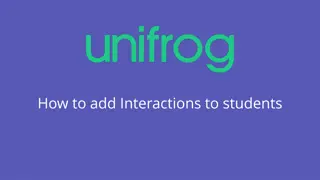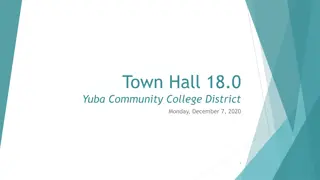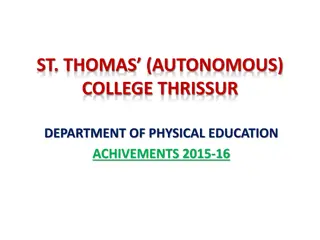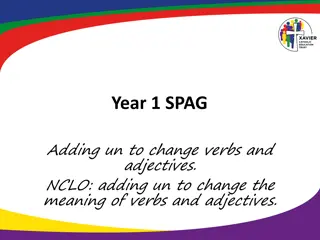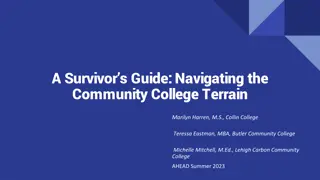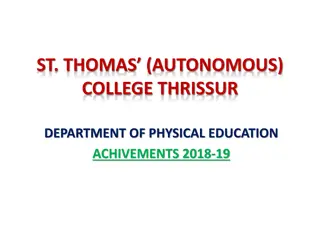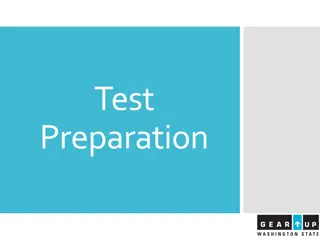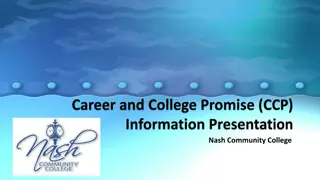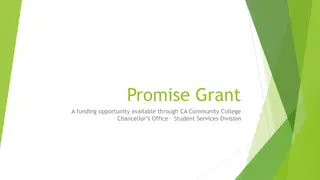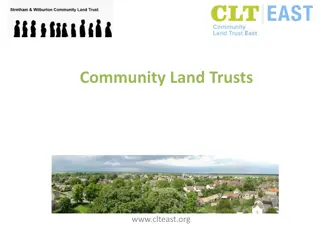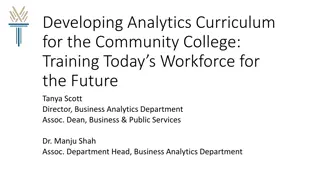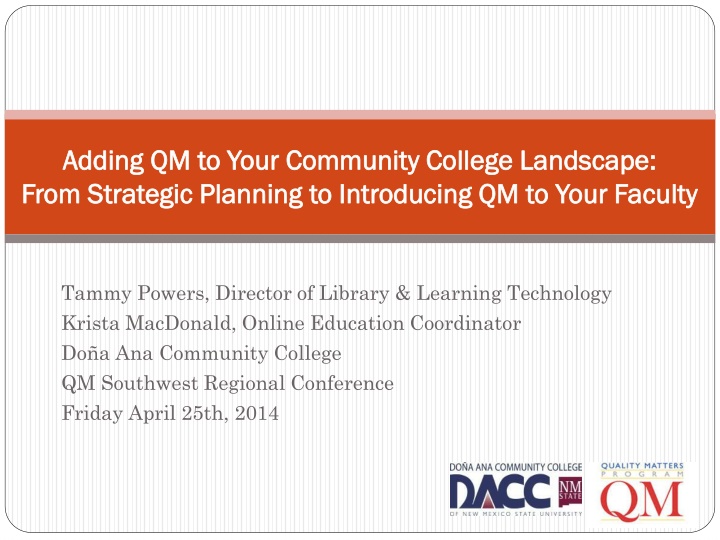
Enhancing Online Learning at DACC: A Focus on Quality Matters and Student Success
Explore how Doña Ana Community College (DACC) is incorporating the Quality Matters (QM) framework to enhance online learning. Delve into strategic planning, faculty readiness, student profiles, demographic assessments, and student placement data. Discover key insights and goals for continued growth and improvement in the online education landscape at DACC.
Download Presentation

Please find below an Image/Link to download the presentation.
The content on the website is provided AS IS for your information and personal use only. It may not be sold, licensed, or shared on other websites without obtaining consent from the author. If you encounter any issues during the download, it is possible that the publisher has removed the file from their server.
You are allowed to download the files provided on this website for personal or commercial use, subject to the condition that they are used lawfully. All files are the property of their respective owners.
The content on the website is provided AS IS for your information and personal use only. It may not be sold, licensed, or shared on other websites without obtaining consent from the author.
E N D
Presentation Transcript
Adding QM to Your Community College Landscape: Adding QM to Your Community College Landscape: From From Strategic Planning to Introducing QM to Your Faculty Strategic Planning to Introducing QM to Your Faculty Tammy Powers, Director of Library & Learning Technology Krista MacDonald, Online Education Coordinator Do a Ana Community College QM Southwest Regional Conference Friday April 25th, 2014
In our session we will discuss: DACC demographics DACC assessment of online learning and teaching DACC online learning and teaching Learning Management System Institutional Structure Course Delivery Student Readiness Faculty Readiness Course Design Course Content DACC goals for continued growth and improvement
DACC Service Area All data from the Do a Ana County US Census Do a Ana County Population 2012 Estimate: 213,952 Las Cruces Population 2012 Estimate: 101,047 USA New Mexico Do a Ana County Per Capita Money Income 2008-2012 Median Household Income 2008-2012 Person s Below Poverty Level % 2008-2012 $28,051 $23,749 $19,517 $53,046 $44,886 $38,462 14.9% 19.5% 25.8%
FALL 2011 DACC Student Profile Head Count 8, 136 9,330 8,825 Full Time Enrollment 4, 881 5,547 5,193 Spring 2013 Fall 2012 Spring 2012 HISPANIC WHITE AFRICANAMERICAN NATIVEAMERICAN ASIAN PACIFIC ISLANDER TWO OR MORE RACES UNKNOWN
Student Placement Percent of Fall New Students Who Will Enroll in Developmental Math or Developmental English at DACC Mean=86% 100% 80% 60% 40% 20% 0% FA9 7 FA9 8 FA9 9 FA0 0 FA0 1 FA0 2 FA0 3 FA0 4 FA0 5 FA0 6 FA0 7 FA0 8 FA0 9 FA1 0 FA1 1 FA1 2 FA1 3 Series1 91% 93% 92% 90% 90% 90% 91% 88% 86% 85% 85% 82% 80% 81% 80% 78% 75%
DACC Assessment of Online and Blended Courses Online Blended Classroom Face-to-Face Count of Student BannerID Count of Student BannerID Count of Student BannerID Pass Rate Pass Rate Semester Pass Rate Fall 2010 Spring 2011 Fall 2011 Summer 2011 Spring 2012 Summer 2012 Fall 2012 69.70% 68.86% 68.91% 86.36% 72.58% 43.68% 70.37% 8613 7958 9156 990 8096 847 8880 62.47% 62.13% 61.64% 70.11% 61.73% 42.97% 64.31% 3797 3367 3999 813 3528 512 3830 76.19% 73.68% 74.81% 126 114 135 75.86% 93.33% 83.33% 87 15 90
VLIT Online Education Student Survey Spring VLIT Online Education Student Survey Spring 2013 2013 Assessed student perceived learning outcomes and satisfaction with the Do a Ana Community College Online Education program. The survey is based on the commonly administered IDEA (Individual Development & Educational Assessment) student rating system created by Kansas State University. The 24 survey questions were hosted by Survey Monkey. The survey URL and instructions were sent to all 2903 student email addresses. We collected 214 valid responses from the survey (10% response rate). We received permission to use the survey for our assessment. It was published in The Determinants of Students Perceived Learning Outcomes and Satisfaction in University Online Education: An Empirical Investigation July 2006 Volume 4 Number 2 by Sean B. Eom, H. Joseph Wen, and Nicholas Ashill in the Decision Sciences Journal of Innovative Education.
Results VLIT Results VLIT Online Education Student Survey Spring Online Education Student Survey Spring 2013 2013 Course Structure A majority of students either strongly agreed or agreed regarding: the overall usability of the course web site was good (76%, 163 students), the course objectives and procedures were clearly communicated (74%, 159 students) the course material was organized into logical and understandable components (66%, 142 students). Student Feedback A majority of student respondents strongly agreed or agreed regarding: their instructor was responsive to student concerns (66%, 142 students), their instructor provided timely feedback on assignments, exams, or projects (65%, 140 students), their instructor provided helpful feedback on assignments, exams, or projects (70%, 150 students), they felt as if the instructor cared about their individual learning in the course (64%, 137 students). Self-motivation A majority of student respondents strongly agreed or agreed regarding: I am goal directed, if I set my sights on a result, I usually can achieve it (87%, 186 students). I put forth the same effort in online courses as I do in a face-to-face course (84%, 179 students). Learning Style The proportion of student respondents that strongly agreed or agreed regarding: I prefer to express my ideas and thoughts in writing, as opposed to verbally (49%, 105 students), I understand the directions better when I see a map than when I receive verbal directions (57%, 123 students).
Results VLIT Online Education Student Survey Spring 2013 Results VLIT Online Education Student Survey Spring 2013 Interaction A majority of student respondents strongly agreed or agreed regarding: I frequently interacted with the instructor in this online course (55%, 117 students) Instructor knowledge and facilitation A majority of student respondents marked either strongly agree or agree regarding: the instructor was very knowledgeable about the course (79%, 170 students), the instructor was actively involved in facilitating the course (71%, 152 students), the instructor stimulated students to intellectual effort beyond that required by face-to-face courses (64%, 136 students). User Satisfaction A majority of student respondents strongly agreed or agreed regarding: the academic quality was on par with face-to-face courses they have taken (62%, 133 students), they would recommend this course to other students (70%, 149 students), they would take another online course at DACC (76%, 163 students). Learning Outcomes A majority of students strongly agreed or agreed regarding: they learn as much from this course as they would have in a face-to-face version of the course (61%, 130 students) the quality of the learning experience in online courses is equal to or better to than in face-to-face courses (55%, 118 students).
VLIT Online Education VLIT Online Education Faculty Faculty Survey Spring Survey Spring 2013 2013 Assessed faculty perceived barriers to online education with the Do a Ana Community College Online Education program. The survey is based on an instrument developed by the North Georgia College and State University. The 36-item questionnaire was constructed, distributed, and collected using Survey Monkey. Forty-five faculty participated in the survey, representing a 35% response rate. The participants were predominantly at the academic rank of instructor (41%), part-time (56%) faculty, having taught online courses for ten or more semesters (60%), and having designed online courses (98%). All faculty ranks were represented and all divisions were represented. We received permission to use the survey for our assessment. Steven A. Lloyd, Michelle M. Byrne, and Tami S. McCoy published their survey March 2012 in the Merlot Journal of Online Learning and Teaching Volume 8 Number 1, article Faculty Perceived Barriers of Online Education.
VLIT Online Education Faculty Survey Spring 2013 VLIT Online Education Faculty Survey Spring 2013 The faculty on average in this study indicated that they did not perceive any interpersonal, institution, training and technology, or cost/benefit analysis barriers. Not a Barrier Somewhat of a Barrier A Barrier Significant Barrier
Factors Affecting Online Course Quality LMS Institutional Infrastructure Course Delivery Student Readiness Faculty Readiness Course Design Course Content
DACC LMS DACC uses Instructure Canvas. We have experienced WebCT, Blackboard and Canvas was implemented two years ago. The multiplicity of tools in Canvas seems to assist our faculty in thinking about course improvement overall.
NMSU System Campuses NMSU New Mexico State University Do a Ana Community College New Mexico State University Alamogordo New Mexico State University Carlsbad New Mexico State University Grants The relationship between campuses is evolving.
DACC Course Delivery Online courses are delivered using Instructure Canvas. Faculty publish their courses the first day of the semester. Types of courses Face to Face Fully online Blended Evaluation Faculty are currently evaluated on their course delivery. A tool has been piloted this semester.
Student Canvas Training From May 2012 -Sept 2013, VLIT has trained 802 students to use Canvas. In Fall 2014, DACC will pilot a pre-enrollment, Canvas training for students as part of the First Year Experience student orientation by DACC Student Services.
Student Readiness Survey Student Readiness Survey Before students begin their online courses, they are encouraged to complete the online Student Readiness Survey located on VLIT s webpage titled Student Resources. The survey is eleven questions long. A student can view the results of the survey immediately after submitting it. The Student Readiness Survey is a tool used by advisors, faculty, and students. http://dabcc.nmsu.libguides.com/vlit-student-resources
Student Preparation Student Preparation In addition to including a When are Online Classes a Good Choice? page within the spring schedule, VLIT has also created and published a checklist for students to help prepare them for their online courses. The checklist reminds students to: Order their textbook and supplies early so they have what they need at the beginning of the course. Be sure to meet any technology skills prerequisites. This is a good time to brush up on the applications you will be using. Have all required hardware and software. Check your equipment and software and make sure everything is functioning properly. Have your Internet service active with the fastest connection that is affordable for you. The faster your internet connection, the more enjoyable and productive your online education will be.
Canvas, Tools, and Technology Currently, it is mandatory for DACC online faculty to complete a Canvas Certification Course. DACC currently has over 260 faculty members, both full and part time, certified to use Canvas. Faculty can attend workshops at DACC through VLIT or the NMSU Teaching Academy to learn about current online teaching tools and technologies. VLIT began offering QM training in Fall 2012.
Professional Development in Online Professional Development in Online Teaching and Learning Pedagogy Teaching and Learning Pedagogy VLIT Book Club: Semester discussions of current books and best practices in online pedagogy (Fall 2012-current) VLIT First Thursdays: Monthly faculty led trainings on best practices in online education (Fall 2012- current) DACC QM Standards Workshops (Fall 2013-current) A majority of faculty have participated in NMSU Teaching Academy sessions for online teaching and learning and/or online training for online education and course design. DACC faculty members have attended a regional or national conference for online teaching and learning. DACC faculty members have earned an NMSU Masters Certificate in Online Teaching and Learning (OTL). DACC faculty are working with faculty from across the state to form the New Mexico Distance Learning Association (NMDLA), a state chapter of the United States Distance Learning Association (USDLA).
DACC Online Course Content Online course curriculum is determined by individual faculty and their departments. All online DACC courses include: DACC Home Page Branding Course syllabus and schedule DACC Student Resources
DACC Selected Quality Matters because: QM addresses the key areas for improvement found in our assessment QM is a faculty driven, peer review process for improving online and hybrid courses The QM rubric is a well-researched faculty support tool QM provides valuable professional development opportunities Other state and NMSU system campuses have become subscribers QM is award winning: Sloan-C, USDLA, WCET
QM Professional Development QM Course Reviews QM Course Reviewers
QM Professional Development Quality Matters Workshops VLIT First Thursdays VLIT Book Club VLIT Canvas Trainings Applying the QM Rubric Peer Reviewer Training Designing Your Online Course Designing Your Blended Course www.qualitymatters.org www.qualitymatters.org
Quality Matters Course Reviews Informal Quality Matters Course Reviews Formal Quality Matters Course Reviews Self Review Peer Review Informal Review by a QM Certified DACC Instructor or VLIT Staff. QM-Managed Course Reviews DACC Managed Course Reviews
DACC Quality Matters Course Reviewers The QM Peer Reviewer certification process is rigorous and time intensive. QM Certified Peer Reviewers are eligible to serve on both QM-managed and DACC-managed formal course reviews. They are paid $150 for each course they review at DACC and through QM. To become a QM Certified Peer Reviewer: Successful completion of the Applying the QM Rubric Workshop and the Peer Reviewer Course (40 hours of training). Current for-credit online teaching experience (within the last 18 months). Completed Application and Memo of Understanding submitted to QM.
Currently at DACC Current Achievements Over 42% of our online faculty have participated in a form of Quality Matters professional development. We have had eight courses officially QM certified, with one underway. Provision of online APPQMR training for DACC instructors. Goals We will start subscriber-led course reviews in the fall semester. Continued QM training for all online instructors, particularly our adjunct faculty. We have had a great beginning and look forward to our next steps.
Thank you! For more information please contact us at: Krista MacDonald, kkozel@nmsu.edu Tammy Powers, tpowers@dacc.nmsu.edu


